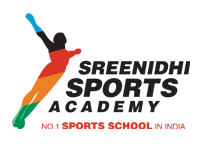Swimming
Setting New Standards In Power And Performance
Overview
The swimming program at SNSA is designed to support swimmers with the determination, drive, desire, and talent to realize their maximum potential in competitive swimming. Through commitment, self-discipline, and time management, swimmers build self-esteem and self-confidence while promoting good sportsmanship and team spirit.
Program Philosophy & Structure
We trust in the pursuit of excellence through the methodical development of skills, training challenges, and attitudes; this enables us to develop well-rounded swimmers who can participate and compete in all four strokes. Athletes are moved through the programs when they are physically and emotionally prepared to cope with the next-level challenges.
Swimmers are required to develop a set list of skills before any move. Every effort and action is made to ensure that no stages are omitted in the development process to enable continued and long-term success in swimming.
Program Description
Our swimming program is expert-designed to realise each student-athlete’s fullest potential and achieve his/her professional goals in the sport. Our innovative Long Term Development (LTD) framework empowers players to reach their highest potential by nurturing the competitive spirit, optimising training, and planning rapid recovery through science-based approaches.
The program is driven by our team of world-class coaches, mentors, and support staff who are dedicated to assisting and nurturing student-athletes to enhance their skills, mindset, strength, discipline, and character essential for athletes to reach their goals and objectives.
Athlete Development Pathways
There are four stages of development that provide elite training maximizing, the physical, mental, and emotional development of each student-athlete.
Mr. D. Shiva Yadav, Head Swimming Coach
Mr. D. Shiva Yadav is our Head Coach for Swimming with a rich experience of 13 Years in coaching budding swimmers to be world-class champions. He has various prestigious accolades and certifications under his belt including the 1st NIS Certification from Sport’s Authority of Bangalore India 2015, Australian (AustSwim) Swimming Licence from (NAC) Bangalore 2018, American Certification (ASCA Level I & II ) from Mumbai 2016, Aqua Fitness Certification from Sport’s Authority of Telangana (Gachibowli Stadium) 2018, and 2nd NIS Certification Course from Sport’s Authority of Kolkata India in 2020.

1. Foundation
- The focus is on developing fundamental skills including the ABCs of agility, balance coordination, and speed.
- Participate in a fun and challenging environment.
- Introduction of basic rules, tactics, and strategies in games and competitions.
- Introduction of the ancillary capacities (warm up, cool down, mobility, nutrition, and mental skills).
2. Intermediate
- Consolidation of sports-specific fundamental skills.
- Introduction to structured strength training, conditioning, nutrition, and periodized skill training.
- Identification and correction of tactical and strategic errors.
- More competition and introduction to national competitions.
3. Advanced
- Year-round periodization.
- Development of pattern recognition skills and situational analysis.
- Increased emphasis on technique and tactics under pressure.
- Introduction to International and national competitions.
- Introduction to Training camps, tours, and competition schedule.
- Solidify sports-specific and position-specific skills.
- Using Imagery at an advanced level (Skills, Strategies, Coping with challenges, and Winning).
4. Elite Stage
- Multiple periodizations with High-Performance sports-specific development.
- Refining of all skills.
- Maximum emphasis on technique and tactics under pressure.
- Maximize sports-specific skills.
- Advanced Imagery utilization.
- Demonstrate self-control over emotions and the ability to deal with distractions/unforeseen situations.
- Training and Recovery
- Schedules are prepared according to various national and international competitions in a calendar.
Sports Science in Integrated Program
We believe that Sports Science is a fundamental component in the holistic development of a modern-day athlete. Our Integrated sports program is driven by science in our quest to help athletes achieve their greatest potential.
Sports Science Department Responsibilities
SNSA’s Sports Science Department comprises a group of highly qualified experts whose mandate is to carry out specific applied research and develop innovative and new approaches for training and performance enhancement across the integrated sports program.
The sports science team specializes in seven aspects: Strength and Conditioning, Sports Biomechanics, Sports Psychology, Sports Physiology, Talent Identification, Sports Nutrition, Research, and Quality Assurance. The specialist departments use the same three-tier method: Identifying talent, Developing potential, and pushing sports science research forward.
Program Organization
It is paramount to have organized and progressive planning to ensure the appropriate development of the athletes in each age category, according to their ability level and capacity to learn.
The year is divided into two main phases the pre-season phase and the competition phase. Due to the ecosystem in which the Academy is inserted, pre-competition phases need to be planned during the second phase before the athletes participate in various meets to ensure an adequate periodization.
Phase I focuses on:
The introduction of sports-specific principles, models, and development of the technical and tactical aspects of respective disciplines. Attention is also paid to the physical and psychological preparation of the athletes.
Phase II focuses on:
The consolidation of all aspects of athlete development, technical, tactical, physical, and psychological, to optimize performance during competition periods.
Competitions :
To continue enhancing their skill development, all our student-athletes depending on their developmental stage participate in the following competitions:
. Schools games
. Local tournaments and Leagues
. State Level competitions
. National Level Competitions
. Regional and International competitions
